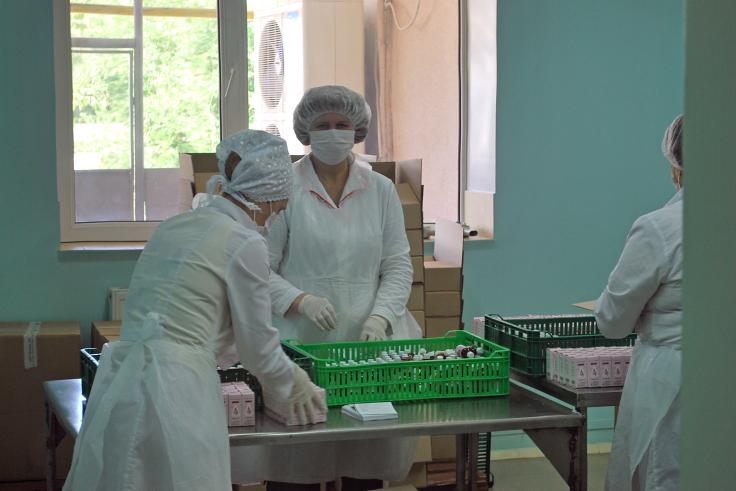 Improving Pandemic Preparedness and Response by Strengthening Human Resources, Enhancing Surveillance, and Advancing Lab Systems
Improving Pandemic Preparedness and Response by Strengthening Human Resources, Enhancing Surveillance, and Advancing Lab Systems
Background
Moldova’s 2018 Joint External Evaluation found significant vulnerabilities in its pandemic preparedness and response (PPR) capabilities. Then, as in so many nations, the COVID-19 pandemic placed an enormous strain on the health system and the economy. The health system has been further strained by the war in Ukraine as Moldova hosts one of the highest numbers of Ukrainian refugees per capita of any country in the European Union (EU).
To meet these challenges, the Improving Pandemic Preparedness and Response by Strengthening Human Resources, Enhancing Surveillance, and Advancing Lab Systems Project is a partnership across Moldova’s ministries and central government authorities and two Implementing Entities (IEs), WHO and the World Bank. It is supported by the $10 million grant from the Pandemic Fund, $42 million in co-financing, and $1 million in co-investment.
Project objectives
The overall project goal is to improve Moldova’s level of preparedness and response to pandemics by strengthening surveillance, laboratory systems, and human resources.
Implementation arrangements and key components
The Project will be coordinated by a dedicated steering committee under the Ministry of Health. It will include representatives of other ministries and relevant government agencies, development partners, civil society organizations, and the Implementing Entities. The three main project components are described below. Implementing Entity involvement in each component is shown in parentheses.
- Strengthening national surveillance and early warning systems. This component will develop a robust surveillance system for vaccine preventable diseases and priority zoonotic diseases/pathogens of greatest public health concern and align it with international surveillance systems. It will support the conversion of the paper-based surveillance system to a digital one. The component includes activities to align the AMR surveillance system to EU/international standards, to encourage rational antibiotic use and to monitor antimicrobial consumption in hospitals and livestock farms. It will integrate the surveillance system for human and animal health. The component also supports refurbishing the infrastructure of the National Agency for Public Health (WHO, World Bank).
- Ensuring readiness of laboratory systems to test, identify, and report results in a safe, timely, and reliable manner. This component will provide equipment and training for the national public health laboratory network. It will support the establishment of a comprehensive national legislative framework for biosafety and biosecurity and will support monitoring biosafety/biosecurity in institutions working with pathogens and dangerous toxins. It will update the national genomic surveillance strategy and action plan. It will also develop and implement national laboratory testing guidelines and standard operating practices (WHO, World Bank).
- Developing and maintaining a highly qualified workforce. This component includes activities to align educational programs for public health specialists and veterinarians to EU/international standards and to incorporate training programs on risk assessment for chemical, biological, radiological, and nuclear threats in educational curricula and post-university continuous education for healthcare and public health professionals. It will integrate principles of One Health in training programs for public health professionals, including epidemiologists, animal health, and food safety specialists. It will reinforce workforce capacities in epidemiological data analysis, immunization practices, behavioral change, and foster international networking (WHO).
Expected outcomes
The Project is expected to result in a functioning early warning system with surveillance systems effective at monitoring diseases with epidemic potential, the ability to rapidly characterize and confirm these diseases, and preparedness to respond to health emergencies.
For general inquiries: the_pandemic_fund@worldbank.org
-
 RegionProject RegionsEurope & Central Asia
RegionProject RegionsEurope & Central Asia -
 CountryProject CountriesMoldova
CountryProject CountriesMoldova -
 Amount Approved (US$) $9,999,764
Amount Approved (US$) $9,999,764 -
 Total Co-financing
Total Co-financing
(in kind & in cash) (US$) $41,882,000 -
 Total Co-investment
Total Co-investment
(in kind & in cash) (US$) $1,317,097

